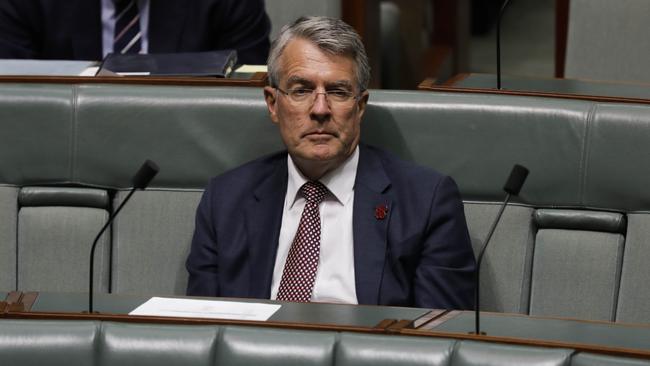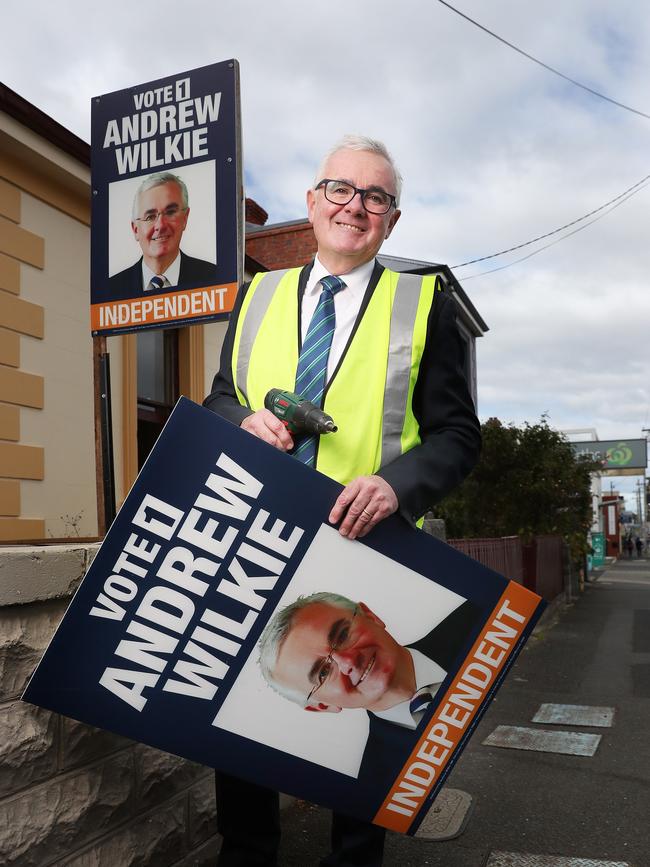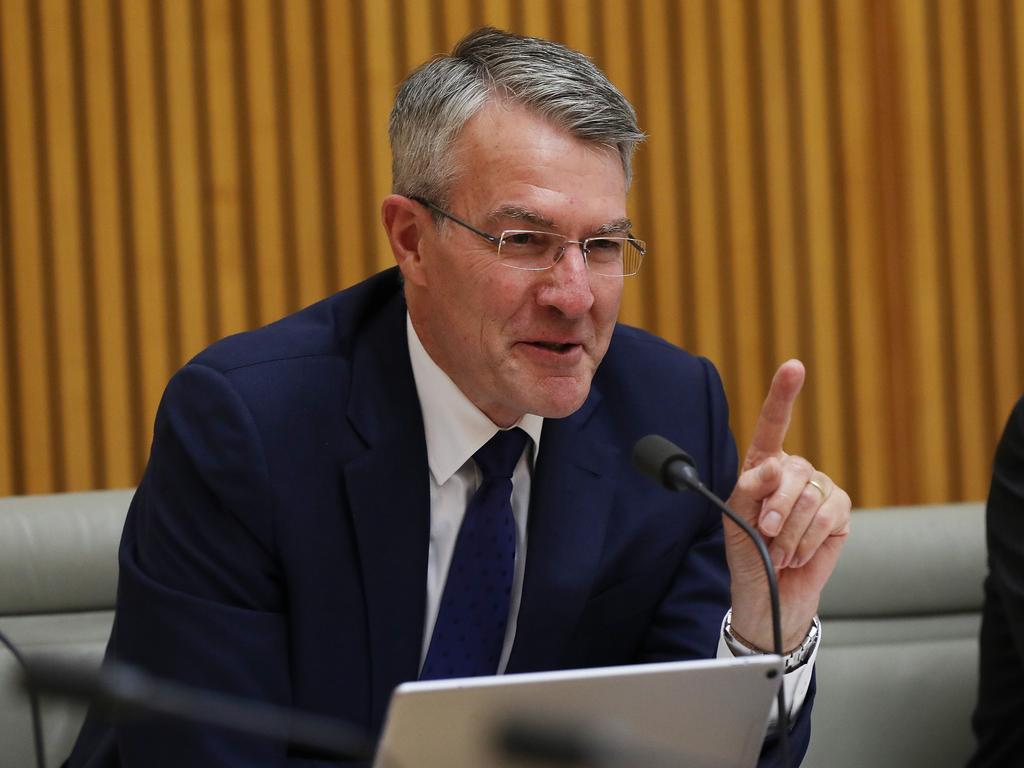
Ruining an innocent person’s reputation and career is done almost routinely today in the name of #MeToo, in the mistaken effort to believe all women. Green activists, especially uber-rich corporate types, support higher energy prices, causing great harm to the lives of millions of others, to secure a renewable nirvana. An activist judge might assume the role of a lawmaking politician to secure some preferred end, with little apparent concern for the wider damage to our democracy when unelected judges usurp parliament.
Sometimes these worlds merge. Victorian Federal Court judge Mordy Bromberg created a novel duty of care on the environment minister to deliver his preferred vision of a greener future. Though the decision was overturned on appeal, Bromberg appeared committed to an end justifying even a legally unsound means.
A similarly flawed mindset is used to justify a federal integrity commission. Many federal politicians, especially the teals, are keen to legislate a broad definition of corruption to clean up Canberra politics. Ending waste, political self-interest and pork-barrelling is a fine ambition. However, it is time that we analysed not only whether their ends justify their means, but indeed the validity of their ends.
Much of the talk around a federal corruption body has focused on pork-barrelling, whether grants doled out by MPs in their electorates that help their re-election should be included in the definition of corruption.
Many MPs, especially the teal-coloured ones, who say yes, it should, will soon come to realise that their re-election depends on more than grandstanding on ABC platforms about deeper, harder and faster cuts to emissions.
Their re-election will be tied to more prosaic work, such as securing grants for their local communities, from a road upgrade to new bridge to a bowling club reno and new tennis courts. At what point does a local grant become corrupt?
All of these grants serve two purposes – they benefit some part of the community and they help an MP get re-elected. A wide definition of corruption that includes pork-barrelling will arm those running a federal ICAC with powers to potentially wreck careers of MPs for securing grants that serve these two purposes.
Our political class may discover some unintended consequences. Tasmanian MP Andrew Wilkie admitted he would use his power in a hung parliament to extract “some largesse” for his seat and state in return for his vote. At what point does securing largesse for his seat serve his re-election, and thus become potential corruption?

Investigating pork-barrelling as corruption will be easy and cheap theatre for a federal ICAC. But if it is potentially corrupt for an MP to grant money to a tennis club to help their re-election prospects, why isn’t it also corruption for a government, or political party, to offer policies for sale to a group that donates to the party and wields political clout across the country?
There is no point being coy; policies are for sale every day in Canberra. Powerful, cashed-up groups able to exert their political power in Canberra can and do secure policies that suit them best.
The Pharmacy Guild is famous for a carrot and stick routine, donating to political parties and threatening to use a phalanx of suburban pharmacists to campaign to keep patently self-serving and anti-competitive rules election after election.
Certain unions routinely extract their quid pro quo from the Labor Party, regardless of the wider economic implications of their favoured policy. For example, some unions derive substantial financial benefits from industry super funds and are not shy about exerting their power over the ALP to ensure industry superannuation funds, and the rivers of gold flowing to those funds, are protected. Consider the marvellous circularity – the Labor Party protects industry funds, which give money to unions, which in turn give money to the Labor Party.
Law firms with big class action practices and close associations to the Labor Party donate buckets of money to the ALP for a reason. Maurice Blackburn, a big donor to Labor, has campaigned for contingency fees so lawyers can secure 30-40 per cent of what plaintiffs win in a class action. And the Victorian Labor government agreed to this.
As opposition legal affairs spokesman, Victorian MP Mark Dreyfus objected to a parliamentary inquiry into the escalating costs in class actions from litigation funders and lawyers’ contingency fees.
Given that donations fill the bank accounts of political parties to campaign for re-election, and Labor’s policies benefit the bank accounts of litigation funders and class action lawyers, shouldn’t a federal ICAC investigate whether these are policies for sale and therefore corruption?
Some jurisdictions have banned certain donors, such as property developers, who historically have wielded too much influence on the body politic. Other groups that do the same might find themselves caught by a broad definition of corruption and any ensuing investigation.
Inevitably, the public nature of the investigation will shame people on both sides of the policy-for-sale equation, even if there is no definitive finding. That might tame lobbying efforts, putting powerful groups such as the Pharmacy Guild and Maurice Blackburn back in their box. Not an undesirable outcome, perhaps.
But this end is not even remotely justified by the means.
Arming a federal ICAC – replete with rules that do not respect due process – with a wide definition of corruption will allow a small group of lawyers to target the industry they find most offensive. For some, it might be the proliferation of poker machines, therefore the influence of the Australian Hotels Association. Perhaps it will be the brute force of industry funds trying to control superannuation policy to their own ends.
Democracy is messy and imperfect, but that doesn’t justify labelling the messier, more unsightly parts as corrupt. Corruption is a word we ought to save for the real thing. Alas, that raises another modern affliction, closely aligned with the ends-justifying-the-means mindset, namely the propensity to make words mean nothing so they can mean anything.
Definitions of bullying and sexual harassment grow wider by the day, arming potential accusers and bureaucracies with power to punish the smallest infraction. Similarly, a wide definition of corruption for a federal ICAC will empower complainants and lawyers to conduct show trials.
In their fervour to clean up Canberra, politicians of all stripes, especially the novice teals, should be careful what they wish for.





It has become the height of political fashion in some circles to claim that a higher moral cause means to hell with the way one secures it. More and more people imaginethat their end justifies even the most flawed, unprincipled or unfair means.